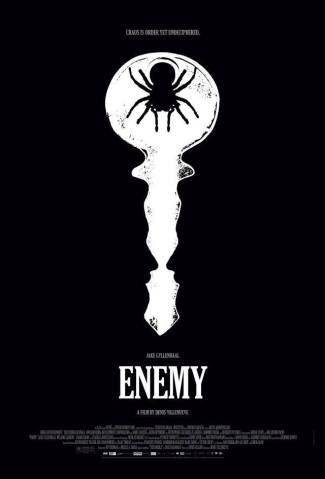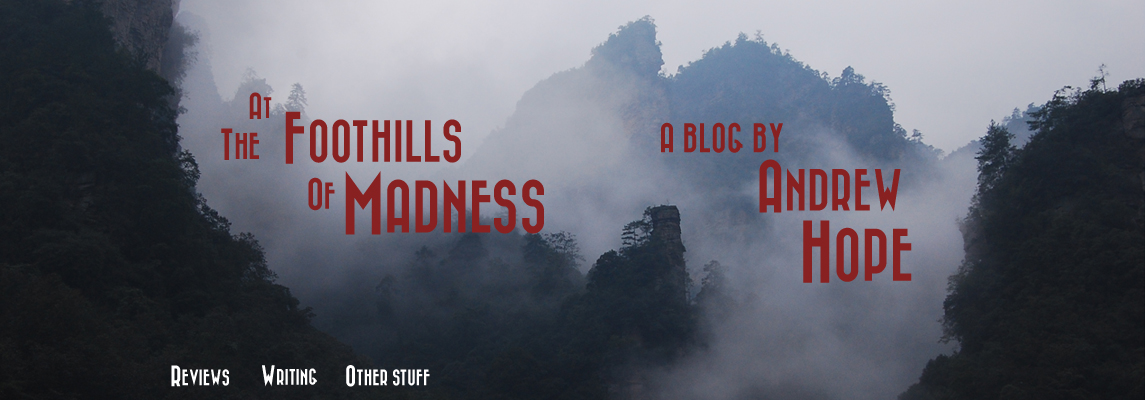
The adjective “Lynchian” gets tossed around frequently, mostly by people who like to sound like they know what they’re talking about when it comes to movie reviews. I don’t claim to be any great film critic or expert, but I can tell you that I am a huge fan of Lynch’s work. He’s by far and away the director whose work I seek out above all others. I don’t even claim to have any great insights into Lynch’s work either. His work is something I consider to be as close as you can get to art-film without sliding into total subjectivism. I recall describing Cameron Crowe’s dull-but-mostly-interesting Vanilla Sky (2001) as Lynch-Lite, which is probably giving him too much credit, but I also use the adjective to describe Denis Villeneuve’s Enemy (2013).
For me, the term is pretty definable, because I choose to restrict it to a pet theme of mine, and less so a signature visual style. That theme is “Identity” – how it can be affected, transformed, compromised. It’s the one thing that each of us has that nobody else can take, the ultimate personal possession. The kind of fiction I like to read is of the Unreliable Narrator variety, because it reflects real life. How do you really know that what this person is saying is the absolute truth? “Truth” is filtered through identity, with all of its quirks, fears, and prejudices, so that the end result is mostly a subjective view of reality. I’m straying from the path here, so to get back on track, I’ll also mention Ingmar Bergman’s 1966 masterpiece Persona, one of cinema’s greatest explorations of the theme, as well as David Lynch’s Mullholland Drive (2001) (my personal all-time favourite movie). Enemy isn’t anywhere near the class of these two movies, nor is it terribly deep or affecting, but I enjoyed a good deal of it due to a confluence of strong elements.
The movie grabbed me immediately – its dark and brooding score by Daniel Bensi and Saunder Jurriaans is nothing but menace and dread from the off, and the opening scene is perhaps the closest to an actual Lynchian element that the movie contains. It suggests a subplot that, unfortunately, doesn’t go anywhere, yet supplies some startling dream imagery all based upon the theme of spiders. Now, I’m not one to interpret movies – I feel you can see whatever you want in them that may or may not be what the writer intended – and while surreal movies seem to cry out for this, it isn’t my thing. I will say that the final scene of the movie is where the dream world and the real world seemingly converge, as the movie’s ending slips into reality. Here is where I was reminded of the key moment of Mulholland Drive where “Betty” disappears with the opening of the blue box, and reality finally catches up in the movie to show us Diane.
On a surface level, the movie is about two identical men leading similar, but different lives. Jake Gyllenhaal (Southpaw) proves once again that he’s one of Hollywood’s best young actors. I’m mystified why he doesn’t get more acclaim for his work. Since The brilliant Donnie Darko, he’s turned in a string of terrific performances, and his dual roles as Adam Bell and Daniel St Claire is more good work. Likewise, Denis Villeneuve proves himself to be one of today’s most capable directors. I say this as a fan, of course, having greatly enjoyed Prisoners and Sicario. As a director, his style is deliberate without being ponderous – exactly in keeping with the performances he gets from his acting talent.
While I loved the surreal aspect of the story, and the characters, my one criticism of the movie is a big one. The two major female characters are objectified too much for my liking. I don’t have any issues with nudity, but it should feel organic and equitable. If you’re going to have nudity in a scene, but only focus on the female actors, that doesn’t feel equitable to me. Both Sarah Gadon and Melanie Laurent are beautiful women, but the movie is not enhanced by their nudity, so why bother? Even though these scenes are not handled exploitatively, the one-sidedness of the nudity feels manipulative and crass, and out of context.
Overall, though, as I said at the top, Enemy is Lynch-Lite – an affectionately-coined term. It’s strong work from both Denis Villeneuve and Jake Gyllenhaal, and well worth watching. At time of writing, it’s free to stream with an Amazon Prime membership.
4.0/5.0
© Andrew Hope, 2016
Links to other reviews mentioned here:
